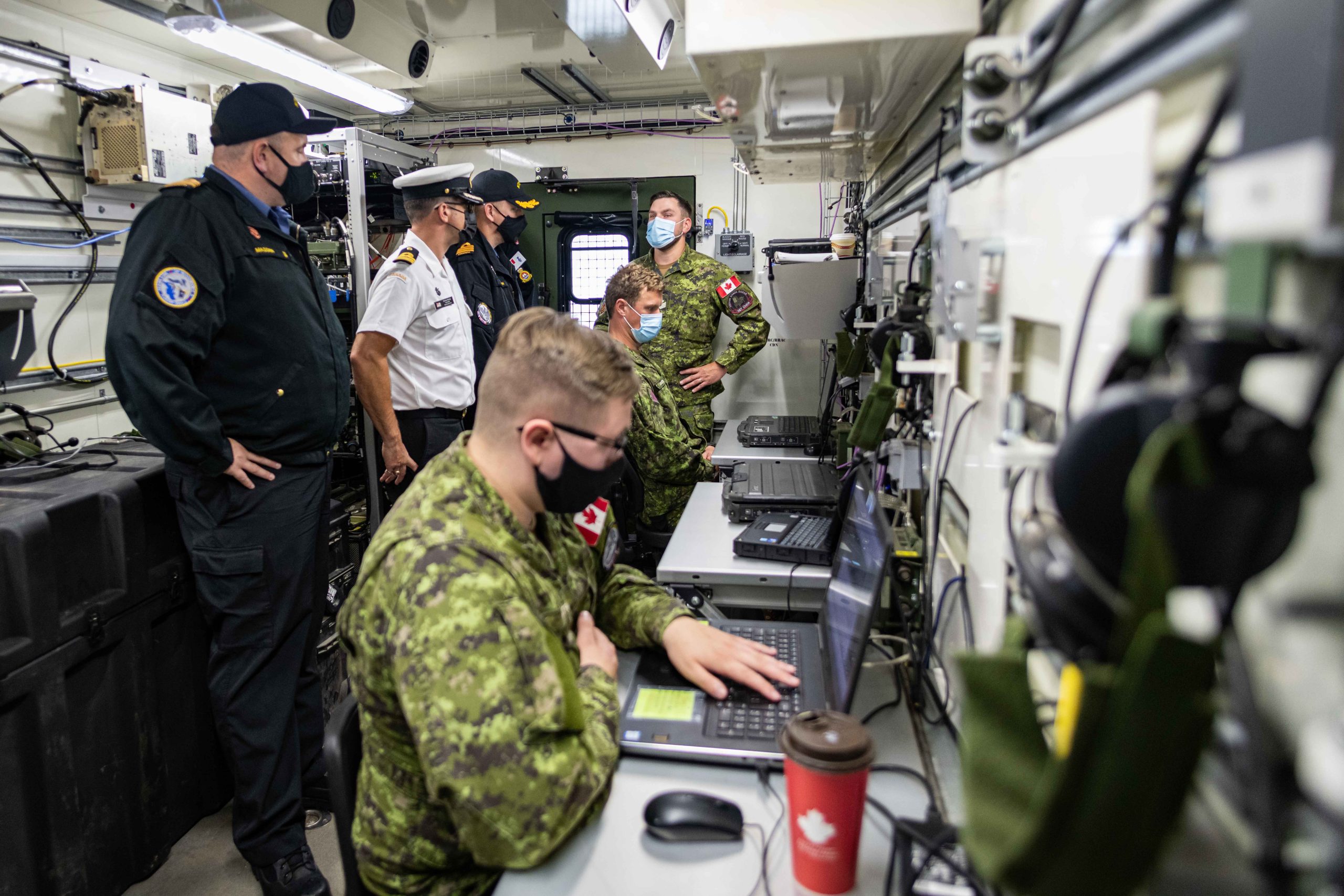
CPL BRADEN TRUDEAU
TDL-400 JICO Course: Exercise CUTLASS FURY 21
By Brian Clancy,
DMSC Comox
“Lose sight, lose the fight” goes the old fighter pilot adage. In modern warfare however, this is even more valid due to the complexity and speed of engagements. By applying today’s advanced Tactical Data Link (TDL) technology to provide the “sight” for the Commander, you get an ideal solution. TDL networks are quite complex and require a great deal of planning and coordination to manage successfully. This role is performed by the Joint Interface Control Officer (JICO) and assigned staff. The recent Exercise CUTLASS FURY 21, a major east coast joint and multi-national exercise, was the perfect venue to qualify 10 new JICO candidates from across the Canadian Armed Forces.
Tactical Data Link (TDL-400) JICO candidates are drawn from the RCN, CA and RCAF. This course is the final validation in which the students apply the theory gained throughout the TDL 100, 200, and 300 courses, along with their unique operational backgrounds in the TDL environment. As the students will tell you, their previous experience is never enough to make this course anywhere near easy. Students began the first week of the course in class, then set up an entire Joint Interface Control Cell (JICC), from which they controlled the complex TDL network for Ex CUTLASS FURY. Also involved was the Medium Range Radar from 4. Artillery Regiment (General Support) and the Aurora’s Deployable Mission Support Centre, plus connections to the Canadian Air Defence Sector, the ships at sea, aircraft over-head, and Regional Joint Operations Centre (Atlantic), making for a fantastic learning environment.
Over the next two-weeks, JICO students operated the watch 24/7, along with four junior Data Link Operators from the RCAF and RCN. The students were evaluated on their abilities not only as the daily JICO but also as JICC Watch Officers. They were required to demonstrate detailed knowledge on a wide range of hardware, software and procedures key to the TDL environment. Dynamic scenarios challenged each student – at times these were “instructor induced” but frequently real-world problems emerged which required team problem-solving. The result was an extremely challenging JICO training environment; equally important, the strong relationships, forged in adversity, built amongst the JICO students will be something they rely on going forward in their careers. The junior Data Link Operators provided the additional benefit to the course by sharing their professional experiences. The JICO students were able to mentor these junior operators, hoping to build the next generation of JICOs. So it’s a win-win all around.
As a final note, we would be remiss in not sending a huge thank you to the tireless and unwavering support of our instructors whose professional acumen and very long hours transformed course theory into a superb live training environment.






